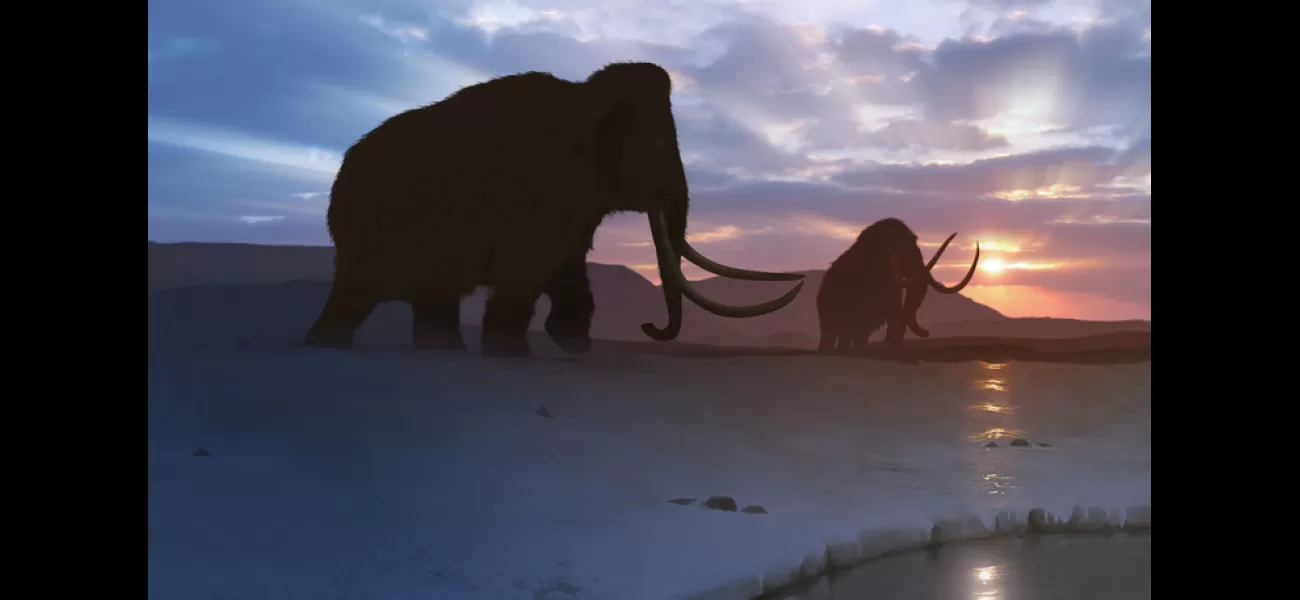Europeans' ancestors mysteriously disappeared; the reason is now known.
Cooling trend caused by a decrease in greenhouse gases.
August 16th 2023.

Our earliest ancestors may have faced a rather different kind of apocalypse than what we experience now with global warming. A new study has revealed that a sudden cooling event about 1.1 million years ago may have wiped out humans in Europe at the time - our distant ancestors, Homo erectus.
Fossils and stone tools found in Europe show that Homo erectus arrived in Europe from Asia between 1.8 million and 1.4 million years ago, but they seem to have died out from the continent about 1.1 million years ago. The next evidence of prehistoric humans in Europe is seen around 900,000 years ago with the arrival of Homo antecessor from Africa or Asia.
A team of researchers led by Axel Timmermann of the Institute for Basic Science in South Korea used climate models to reconstruct the climate of Europe during this time. They found that the average temperature in Europe dropped by about 5C over a period of just a few decades. The water temperature near Lisbon alone dropped from 21C on average to around 6C.
This sudden and dramatic cooling would have made it difficult for Homo erectus to find food, as fewer plants and animals would have been able to survive the extreme climate change. In addition, Homo erectus were not well suited to the cold climate either, lacking the fat insulation and means to make fire, effective clothing, or shelters.
The cause of the cooling seems to have been Jupiter’s gravitational influence making the Earth’s orbit roughly circular around the Sun, a circumstance associated with other cooling phases in our planet’s climate. This was accompanied by a drop in carbon dioxide levels in the atmosphere, although it remains unclear if this was the cause of the cooling or a consequence of it.
This climate event provides us with a valuable insight into how climatic variability can have a profound effect on human populations, something we are still dealing with today. As Michael Petraglia, a Paleoanthropologist, said to LiveScience, “This is a story of how climatic variability had profound effects on hominin populations in the past, with implications for all of humanity today who face extreme weather events and changes in ecosystems.”
Fossils and stone tools found in Europe show that Homo erectus arrived in Europe from Asia between 1.8 million and 1.4 million years ago, but they seem to have died out from the continent about 1.1 million years ago. The next evidence of prehistoric humans in Europe is seen around 900,000 years ago with the arrival of Homo antecessor from Africa or Asia.
A team of researchers led by Axel Timmermann of the Institute for Basic Science in South Korea used climate models to reconstruct the climate of Europe during this time. They found that the average temperature in Europe dropped by about 5C over a period of just a few decades. The water temperature near Lisbon alone dropped from 21C on average to around 6C.
This sudden and dramatic cooling would have made it difficult for Homo erectus to find food, as fewer plants and animals would have been able to survive the extreme climate change. In addition, Homo erectus were not well suited to the cold climate either, lacking the fat insulation and means to make fire, effective clothing, or shelters.
The cause of the cooling seems to have been Jupiter’s gravitational influence making the Earth’s orbit roughly circular around the Sun, a circumstance associated with other cooling phases in our planet’s climate. This was accompanied by a drop in carbon dioxide levels in the atmosphere, although it remains unclear if this was the cause of the cooling or a consequence of it.
This climate event provides us with a valuable insight into how climatic variability can have a profound effect on human populations, something we are still dealing with today. As Michael Petraglia, a Paleoanthropologist, said to LiveScience, “This is a story of how climatic variability had profound effects on hominin populations in the past, with implications for all of humanity today who face extreme weather events and changes in ecosystems.”
[This article has been trending online recently and has been generated with AI. Your feed is customized.]
[Generative AI is experimental.]
0
0
Submit Comment





